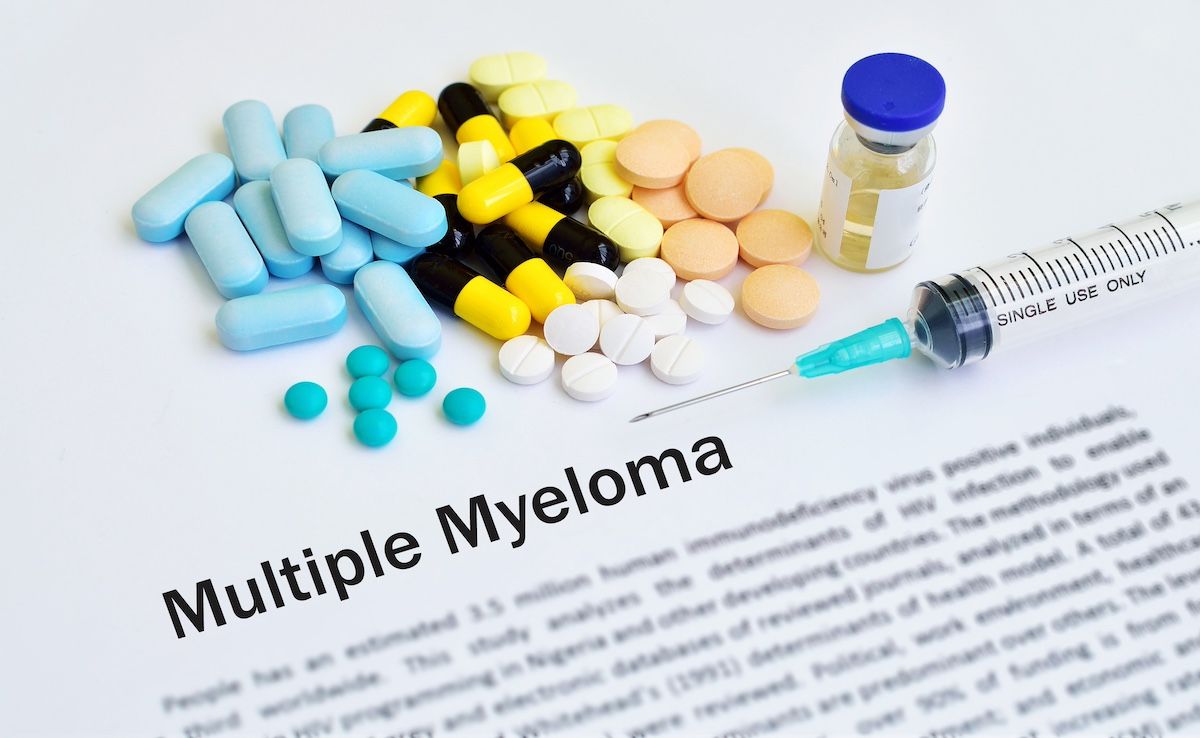- Center on Health Equity & Access
- Clinical
- Health Care Cost
- Health Care Delivery
- Insurance
- Policy
- Technology
- Value-Based Care
Top 5 Multiple Myeloma Content of 2024
Through interviews and articles infused with expert insight, progress against this cancer that develops in the bone marrow was showcased.
Throughout our top content of 2024, highlights in the multiple myeloma space showcase the FDA discussion around minimal residual disease (MRD) status, disparities in chimeric antigen receptor (CAR) T-cell therapy, treatment advances for patients experiencing early relapse or several lines of treatment failure, and a palm-sized single-use on-body device for treating a rare and life-threatening blood disease. Through both interviews and articles infused with expert insight, progress against this cancer that develops in the bone marrow was showcased.
Please also visit our dedicated MM page for exclusive content from the space.
5. MRD: A Game Changer in Multiple Myeloma
MRD status was one of the hottest topics in the multiple myeloma space in 2024, with the FDA’s Oncologic Drugs Advisory Committee unanimously voting in April to use MRD-negative status as a surrogate end point for accelerated drug approval. In part 2 of our interview with Surbhi Sidana, MD, MBBS, vice chair of the American Society of Hematology’s Committee on Communications—you can see part 1 here—she spoke to the role of MRD status in multiple myeloma. “What this tells us is that if you have low-level disease that we cannot detect by MRD—it doesn't mean there's no disease, just that these techniques cannot detect—those patients do better. We've seen that historically,” she explained. Sidana is also associate professor of medicine and director of the Myeloma Disease Focused Group at Stanford University.
4. Miles Matter: The Geographic Disparity That Impacts Access to CAR T Therapy
This article published in the October issue of Evidence-Based Oncology™ explores proximity to a treatment center as one of the many factors that contribute to disparities in treatment with CAR T, along with age, race, and income. Insurance restrictions also are often to blame, with patients being unable to cross state lines to undergo the treatment at a center that could be minutes away vs an hours-long drive within their home state. Adding to these challenges are the current strict postinfusion monitoring requirements, which could be remedied if they were to become more flexible, the experts interviewed in this article concur. At present, the FDA requires that patients remain near their treatment center for 4 weeks and do not drive for 8 weeks after a CAR T infusion.
Through interviews and articles infused with expert insight, progress against this cancer that develops in the bone marrow was showcased. | Image Credit: © jarun011-stock.adobe.com

3. Game-Changing Strategies for Early-Relapsed Myeloma
In this interview, which took place at the European Hematology Association 2024 Congress, Joseph Mikhael, MD, MEd, FRCPC, FACP, chief medical officer of the International Myeloma Foundation, spoke to outcomes among patients with early relapse—a relapse within 1 or 1.5 years of transplant or initial therapy—of their multiple myeloma. He discussed unmet medical needs among these patients, such as access to CAR T therapy and reducing their treatment-related toxicities. Of particular importance is the urgency to fulfill unmet treatment needs among these patients, knowing that patients who experience early relapse tend to have worse overall outcomes. Mikhael is also professor at the Translational Genomics Research Institute in Phoenix, part of the City of Hope system, and director of the myeloma program and research program at the HonorHealth Research Institute in Scottsdale, Arizona.
2. Daratumumab-Based Regimen Potential Promising Bridging Therapy for RRMM
In this article from February, the combination of daratumumab and an immunomodulatory agent was shown beneficial after it was readministered to patients who had previously failed separate treatment with the monoclonal antibody, other immunomodulatory medications, or proteasome inhibitors. The study investigators noted the synergistic effect of the investigative combination in the fourth line among the 37 patients included in their analysis, all of whom experienced disease progression. Outcomes evaluated were complete response, very good partial response, partial response, and progression-free survival.
1. On-Body Delivery System enFuse Saves Time, Improves QOL for Patients
In this article, which was published in the April 2024 issue of Evidence-Based Oncology, time and quality of life were cited as boons of the enFuse injector from Enable Injections. This on-body delivery system was approved by the FDA in October of 2023 to deliver pegcetacoplan (Empaveli; Apellis Pharmaceuticals) for paroxysmal nocturnal hemoglobinuria. At the time of this article’s online publication in February, there was already an uptake rate of 60% at 4 months post approval. EnFuse is currently being studied as a delivery mechanism for isatuximab (Sarclisa; Sanofi) in the setting of relapsed/refractory multiple myeloma.
Quality of Life: The Pending Outcome in Idiopathic Pulmonary Fibrosis
February 6th 2026Because evidence gaps in idiopathic pulmonary fibrosis research hinder demonstration of antifibrotic therapies’ impact on patient quality of life (QOL), integrating validated health-related QOL measures into trials is urgently needed.
Read More
